25 Best Bug Out Bag Food Items for Survival & Emergencies
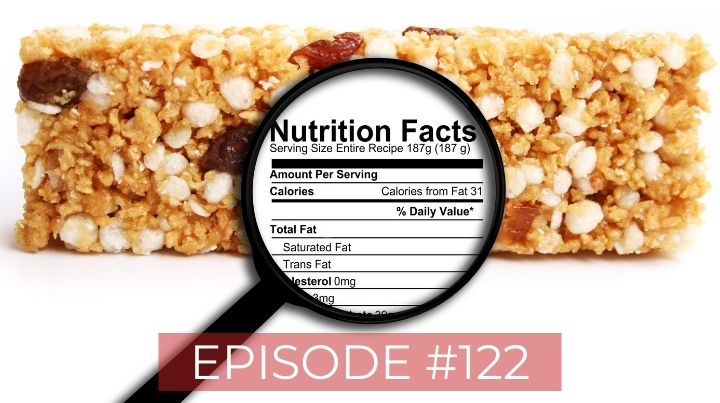

Podcast: Play in new window | Download
When you're loading up your backpack, you want to be sure that you fill it with the items that give you the best chance for survival, including the best bug-out bag foods.
After all, you might one day be staking your life on the contents of your bag.
Many people who have done a trial run have discovered that the items they packed were either not quite right for their purpose or added too much weight for their value.
So back to food…what are you thinking of including? Check out this breakdown on the best food for bug-out bags before you decide on what to include.
Disclaimer: This article contains affiliate links that I may receive a small commission for at no cost to you if you choose to purchase a product through a link on this page.
What Are the Best Bug-Out Bag Food Options?
1. Trail Mix
Trail mix is a good option for your bug-out bag because it's lightweight and provides a lot of energy.
2. Nuts
Nuts are a good option for Bug Out Bag food because they're easy to eat on the go and provide a lot of energy, fat, and protein.
3. Food Bars
Food bars are ideal because they're lightweight, compact, and calorie-rich.
This makes them the perfect solution for providing energy when you're on the go and need to keep your strength up.

4. Tuna Pouches
Tuna contains protein that will keep your strength up when you're on the go. Tuna also has omega 3s, vitamin D, and B12, all-important nutrients.
5. Chicken Pouches
Like tuna, chicken pouches are an excellent food option because it's lightweight and high in protein.
6. SPAM Pouches
SPAM is a food that you can eat on the go. It is lightweight and compact, making it a good option for Bug Out Bag food.
SPAM is also high in protein and fat, making it a good choice for people who need to maintain their strength during emergencies and other situations.
7. Jerky
Jerky is an excellent food for bugging out. It's lightweight and compact and doesn't need to be refrigerated, so it's perfect for packing with you.
8. Pemmican
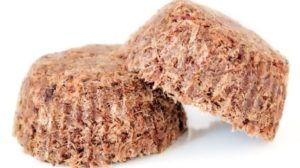
Pemmican is a traditional Native American food made from dried meat, fat, and berries.
It is a high-energy, protein-rich food originally used by hunters and traders who spent long periods away from home.
9. Biltong
My friends from South Africa first introduced me to biltong while in Iraq. 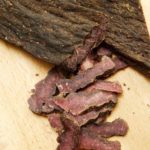
Biltong is similar to jerky and is lightweight and compact, making it easy to pack into your backpack.
Second, it doesn't need to be refrigerated so that you can keep it with you at all times.
Third, biltong is high in protein and fat, making it an ideal choice for people who need to maintain their strength during emergencies or challenging circumstances.
10. Dried Salami
I love dried Salami and know that most people love it as well. So, when packing your bag and looking for something tasty and easy to eat on the go, grab some salami and get ready to hit the road.
Note: Reader Ralph Scott warns in the comments below that “Salami has an odor and can attract animals while you sleep. The less food odor the better.”
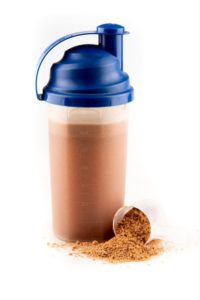
11. Protein Powder
Protein powder is a shake it and drink it sustainment option that helps you keep you moving and on the go.
12. Meal Replacement Shake Powder
Like protein powder, meal replacement shake powders are a convenient way to ensure you're getting the nutrients you need when you're on th
e go.
13. Powdered Milk
Powdered milk is a low-cost, high-nutrient food that can last for years without spoiling. It's a good source of calcium, protein, and vitamin D.
14. Coconut & Olive Oil Packets
Coconut oil is a healthy fat with many benefits, including improving your heart health and reducing inflammation.
15. Powdered Peanut Butter
Peanut butter powder is an excellent source of protein and can be added to trail mix, oatmeal, or protein shakes. It's also a good fiber, magnesium, and vitamin E source.
16. Non-Melting Candy
Non-melting candy such as M&Ms is a tasty and rewarding addition to your bug-out bag.
While I don't usually eat candy, you can bet your last bullet that I'll love to eat a pack if I'm out moving with a pack on my back. They're full of energy and comfort!
17. Powdered Energy Drinks
Powdered energy drinks are an excellent fuel source for people on the go. They provide a quick and easy way to get the energy you need while keeping you hydrated and maintaining your productivity.
18. Carbohydrate Gel
Carbohydrate gels are great pocket stuffers that you can consume on the run and which will help keep you on the run.
These are the best minimal-prep options:
19. Instant Mashed Potatoes
Mashed potatoes are a great food to take on bug-out bags and camping trips because they are filling and easy to make.
20. Instant Rice
Rice is a great food to have in your Bug Out Bag because it only requires water, fire, and a pot for preparation, and it's lightweight, compact, and filling starchy food.
21. Instant Oatmeal
Oatmeal makes a great breakfast food. When starting your morning, oatmeal is filling and tastes great with a cup of instant coffee.
22. Freeze-Dried Food
Freeze-dried foods have been around since World War II when they were used by pilots who needed enough food that could withstand extremes in temperature without spoiling or being damaged by moisture.

Fortunately, freeze-drying technology has improved over the years, making these types of food more available than ever before.
Check the package before buying if you're sensitive to salt because some freeze-dried foods contain too much sodium.
23. Powdered Soup Mixes
Powdered soup is easy to prepare and can be made with just water. They also make a great addition to rice meals.
24. Survival Rations
These rations may feel more like a brick than a ration. And, they're packed full of tasty calories that you can eat on the fly. They're definitely worth considering and tasting.
25. Energy Bars
Bugging out isn't easy, which means you're going to need some energy and these Energy Bars are an excellent way to fuel up.
How to Choose the Best Bug Out Bag Food?
Bug-out bags are essential for emergencies, and the food you pack in your bag is one of the most important decisions you'll make.
So what are the key factors to consider when choosing the best bug-out bag food?
Key factors to consider when choosing your bug-out bag food are:
Calories
Calories keep you going. So, choose calorie-dense foods that provide the greatest energy bang for your buck possible.
For example, military MREs are made with high-calorie foods to fuel the physical exertion of carrying a rucksack and being super active.
When it comes to long-term, sustained activity, the more calories, the better.

Weight
People new to prepping tend to overload their bug-out bags.
After all, it's better to have it and not need it than need it and not have it, right? The short answer is not when you're carrying it on your back.
Your bug-out bag must be kept light enough to allow you to walk for miles and perhaps days on end.
Therefore, think strategically and with your knees and lower back in mind. Consider lightweight foods such as freeze-dried foods, dried fruit, and other dehydrated foods.
With that, avoid food items such as canned food, canned meats, and anything in glass jars. You don't need the added weight or the chance of broken glass tearing up the gear in your bag.
Size
The size of the food you carry matters. Just as with weight, the amount of room you have in your bug-out bag is limited.
Therefore look for foods that are small in size yet still pack a big punch in nutrients. Some foods to consider are protein bars, tuna pouches, and small bags of high-energy nuts.
Shelf Life
The smart move with your bug-out bag food is finding food with an extended shelf.
Stocking your bag with long shelf life food helps avoid the need to restock your supplies regularly.
So, search out the best longer shelf life, shelf-stable food for your budget when prepping your family's bug-out bags.
Health
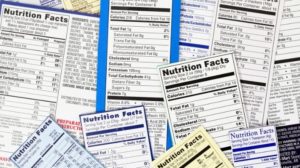
The health of your food can be thought of in several ways.
First, what is the amount and ratio of your foods fat, protein, and carbohydrate macronutrients?
Next, survival food doesn't have to be unhealthy.
By planning and preparing in advance, you can find food options that have healthy fats, high nutritional value, and meet any dietary restrictions and preferences.
So, don't worry about the preppers who state that you can't eat healthy in the apocalypse because you can!
Convenience
When you're on the move, and the goal is to click off miles, eating becomes a necessary inconvenience.
Therefore, you will want survival food that requires very little food prep. Also, keep an eye out for foods that can be eaten cold or which cook quickly.
Sure, a hot meal is always a welcome treat at the end of a hard day. Unfortunately, a fire is not always an option when escaping and evading during an SHTF event.
Therefore, consider adding food that doesn't require hot water. Some emergency food options are meal replacement shakes, dried fruits, tea bags, and other drink mixes.
If you have the option to have a fire, you should probably keep it small and extinguish it as soon as possible. To help make that happen, do NOT use your fire to cook a complete meal.
Instead of elaborate meals that people can smell from far away, focus on foods that require very little preparation and boil water.
Some lightweight food that meets the boiling water requirement are:
- Instant oatmeal
- Instant coffee
- Instant mashed potatoes
- Freeze-dried food
- Powdered milk
- Instant rice
- Soup mix
Variety
Variety is the spice of life. As such, mixing up your food options is a great course of action for the prepper who wants to make the suck of an SHTF event suck a little less.
So, add in the spices that make up the delicious flavors of the food you like.
Personally, when I'm out humping my backpack, I love the taste and extra energy I get from candy bars.
I actually look forward to a Snickers Bar and set it as the reward for reaching a goal along the way. That goal may be hitting a certain waypoint or knocking off an extra mile or two when I'm already tired and want to stop.
How Much Food Do You Need?
Everyone's food needs vary. However, a general rule of thumb to get yourself started is by planning to consume 2000 calories per day.
While 2000 calories per day is a good starting point, it will need to be adjusted based upon your metabolism, activity level, and environment.
So, do your research before packing food into your pack and learn exactly how many calories of survival foods you need to maintain your energy levels and function properly.
What Is NOT the Best Bug Out Bag Food
Good bug-out bag food does NOT include anything that adds unnecessary weight to your back.
Likewise, good bug-out bag food does NOT include anything that takes up space needed for other survival gear.
So, leave heavy canned foods, jars of peanut butter, and other food that doesn't meet your weight and size requirements at home or in your vehicle.
Are MREs Good for Your Bug Out Bag
Many people don't like to pack MREs in their bug-out bag, and it makes sense not to pack a full MRE.
It makes sense because MREs in their factory packaging take too much space.
However, if packed properly, MREs can be a good addition to your bug-out plan. The key with MREs and bug-out bags is how you pack them.
MREs in the pre-packaged form are only convenient when stored at home or perhaps in your vehicle.
The best way to pack MREs in your bug-out bag is to field strip them. In other words, open the MRE up, sort the contents you want to keep, and dump the rest.
For example, when carrying MREs as bug-out bag food, I carry the main meals and a few of the more tasty and beneficial inner packs of food.
On that, I've found the main meals are a good fit for the cargo pockets on many pants. By carrying them in the cargo pocket, I can eat a meal on the fly without digging into my pack.
If you're carrying MREs, don't forget to keep a spoon in your pocket as well, and you'll be all set.
The Bottom Line of Bug-Out Bag Food
When it comes to your bug-out bag food, you control what goes into your bag and ends up in your belly.
So, don't take the easy and less effective way out by purchasing random garbage food.
Plan out what you need, what you like, and what you want to carry and eat.
When you do all of that, you'll be ready to move out under your load for quite a while and have a leg up on any SHTF or bug-out situation you may find yourself in.
Now, I'm grabbing some Trail mix and prepping to hit the trail! How about you?
What Foods Do You Recommend?
What do you keep in your bug-out bags? Are there any foods that are essential for you?
What do you find to be the best food for bug-out bags? Let's discuss it in the comments.
Stay safe,

Related Articles
FREE Guide
Read the Best Seller
Join Mind4Survival
Stay informed by joining the Mind4Survival! 100% Secure! 0% Spam!
Affiliate Disclosure...
Mind4Survival is a free, reader supported information resource. If you make a purchase through our link, we may, at no cost to your, receive an affiliate commission.
Do You Want To Be Ready No Matter What?

Download our free 39-page guide with interactive, 7-Day Emergency Kit Checklist and take the first step toward real preparedness.
- Know exactly where to start.
- Save time and money.
- How-to build a complete Basic Emergency Kit.
- Level up your safety and security.
Join Mind4Survival
Stay informed by joining the Mind4Survival! 100% Secure! 0% Spam!

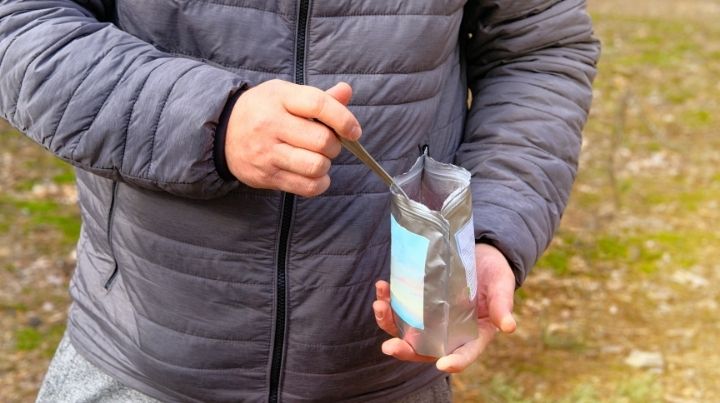
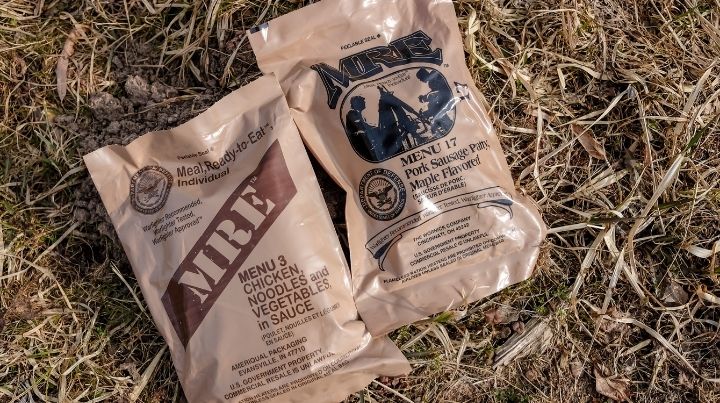
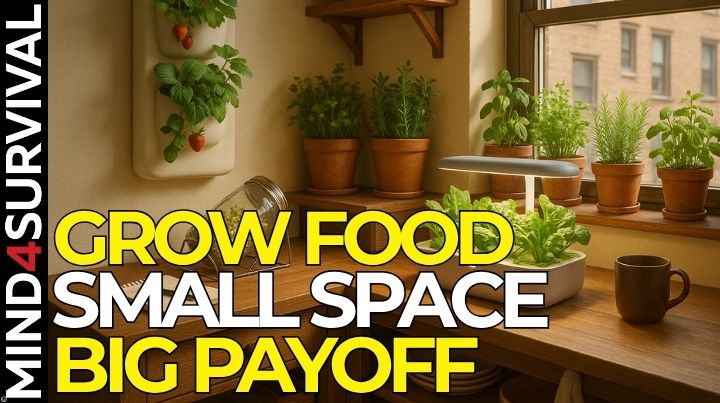




Salami has an odor and can attract animals while you sleep. The less food odor the better.
This is a great podcast and fun to listen to!! It’s ALWAYS great to hear from Daisy! Good points to take into consideration.
Sorry to hear about Ms. Kitty, though.
“I’m not a taco. I can’t make everyone happy.” hahahahahaha….
I keep a box of foil bag foods for hiking, Bugout and regular eating (complete with seasonings). In Western Canada, grocery stores carry full aisles of “ethnic foods” which are often in foil bags. My favorite maker is East Indian company Tasty Bite (imported by Preferred Brands Int’l, Stamford, CT, USA) and they say: “The Best By date noted on our pouches is the recommended industry standard of 18 months from our manufacture date. This is the date to which we guarantee freshness. However studies have shown that our products are still safe to consume 6 months after the Best By date.” There are 8 kinds of rice, Bombay Potatoes, Coconut Squash Dal, Channa Masala, vegetables, (chickpeas), lentils, and more. 285g weight. natural, no preservatives, vegan, non gmo, kosher, no preservatives.